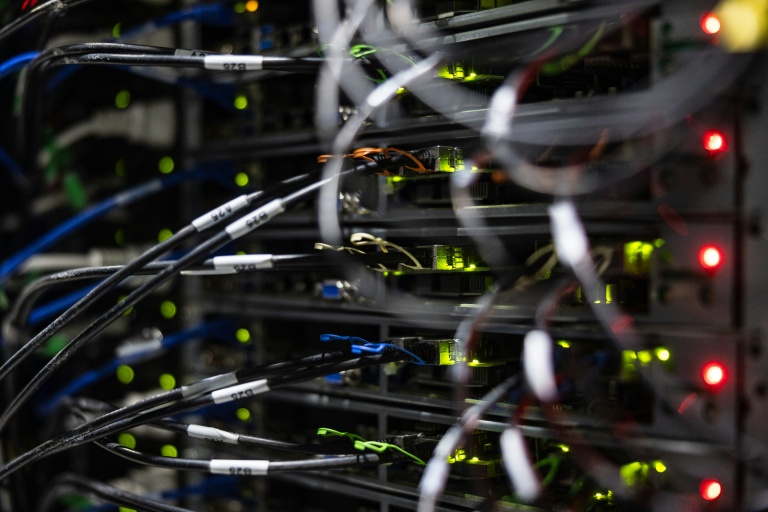Science
UN Vote May Prevent Fragmentation of the Internet into ‘Splinternets’

The risk of the internet splitting into national “splinternets” may be averted during a crucial United Nations vote on December 15-16, 2023. This insight comes from Kurtis Lindqvist, the head of the Internet Corporation for Assigned Names and Numbers (ICANN), who spoke at the Web Summit technology conference in Lisbon on Tuesday. Lindqvist noted that many countries, including those previously skeptical of the current governance model, now recognize its effectiveness.
The upcoming UN meeting will involve officials from member countries reviewing the established rules governing the internet over the past two decades. Some proposals suggest transferring control of internet address management from the US-based ICANN to various governments and trade groups. Such a shift could risk creating a fragmented “splinternet,” where users face difficulties or high costs connecting across different address systems.
Lindqvist expressed a cautious optimism that the existing governance framework would remain intact. He stated, “There’s some careful optimism that the existing system will remain in place. But let’s see what happens in December.” He emphasized that meaningful negotiations will begin now to establish the text to be adopted at the UN headquarters in New York.
ICANN’s Role in Global Internet Management
ICANN is primarily responsible for coordinating the global allocation of internet addresses, including user-friendly domain names and the numerical IP addresses used by computers. The organization has played a crucial role in ensuring a unified address system, allowing seamless interactions across the globe. Lindqvist highlighted that the internet’s social and economic advantages stem from having a consistent technical standard in place.
He remarked, “The internet’s social and business benefits are only possible because we have a uniform technical standard. If we start fragmenting this by raising barriers or through policy actions, then we start diminishing this value creation.”
Over the years, as the internet has become deeply integrated into daily life, Lindqvist noted that people have started to take its functionality for granted. He warned, “We have unfortunately been so phenomenally successful with this that people are starting to take the internet for granted, and that’s the real risk.”
Future of Global Internet Governance
Lindqvist also urged the UN to reconsider its practice of reviewing internet governance every ten years. He stated, “The model of governing the internet has been successful… We know it works,” adding that this sentiment appears to be shared by the majority of member states.
In contrast, discussions surrounding the regulation of artificial intelligence (AI) are much less settled. Lindqvist noted that, unlike the established internet governance model, “everything literally is on the table” regarding AI regulation. He compared the current discussions to those of the late 1990s, highlighting the broad spectrum of proposals, ranging from independent governance similar to ICANN to the formation of a dedicated UN agency for AI.
As the December meeting approaches, the outcome will be pivotal in determining the future of internet governance and its global connectivity. With the potential for significant implications, the world watches closely as stakeholders come together to shape the internet’s regulatory landscape.
-

 World4 months ago
World4 months agoScientists Unearth Ancient Antarctic Ice to Unlock Climate Secrets
-

 Politics5 days ago
Politics5 days agoSecwepemc First Nation Seeks Aboriginal Title Over Kamloops Area
-

 Entertainment4 months ago
Entertainment4 months agoTrump and McCormick to Announce $70 Billion Energy Investments
-

 Lifestyle4 months ago
Lifestyle4 months agoTransLink Launches Food Truck Program to Boost Revenue in Vancouver
-

 Science4 months ago
Science4 months agoFour Astronauts Return to Earth After International Space Station Mission
-

 Technology2 months ago
Technology2 months agoApple Notes Enhances Functionality with Markdown Support in macOS 26
-

 Top Stories1 month ago
Top Stories1 month agoUrgent Update: Fatal Crash on Highway 99 Claims Life of Pitt Meadows Man
-

 Sports4 months ago
Sports4 months agoSearch Underway for Missing Hunter Amid Hokkaido Bear Emergency
-

 Politics3 months ago
Politics3 months agoUkrainian Tennis Star Elina Svitolina Faces Death Threats Online
-

 Politics4 months ago
Politics4 months agoCarney Engages First Nations Leaders at Development Law Summit
-

 Technology4 months ago
Technology4 months agoFrosthaven Launches Early Access on July 31, 2025
-

 Top Stories3 weeks ago
Top Stories3 weeks agoFamily Remembers Beverley Rowbotham 25 Years After Murder





















